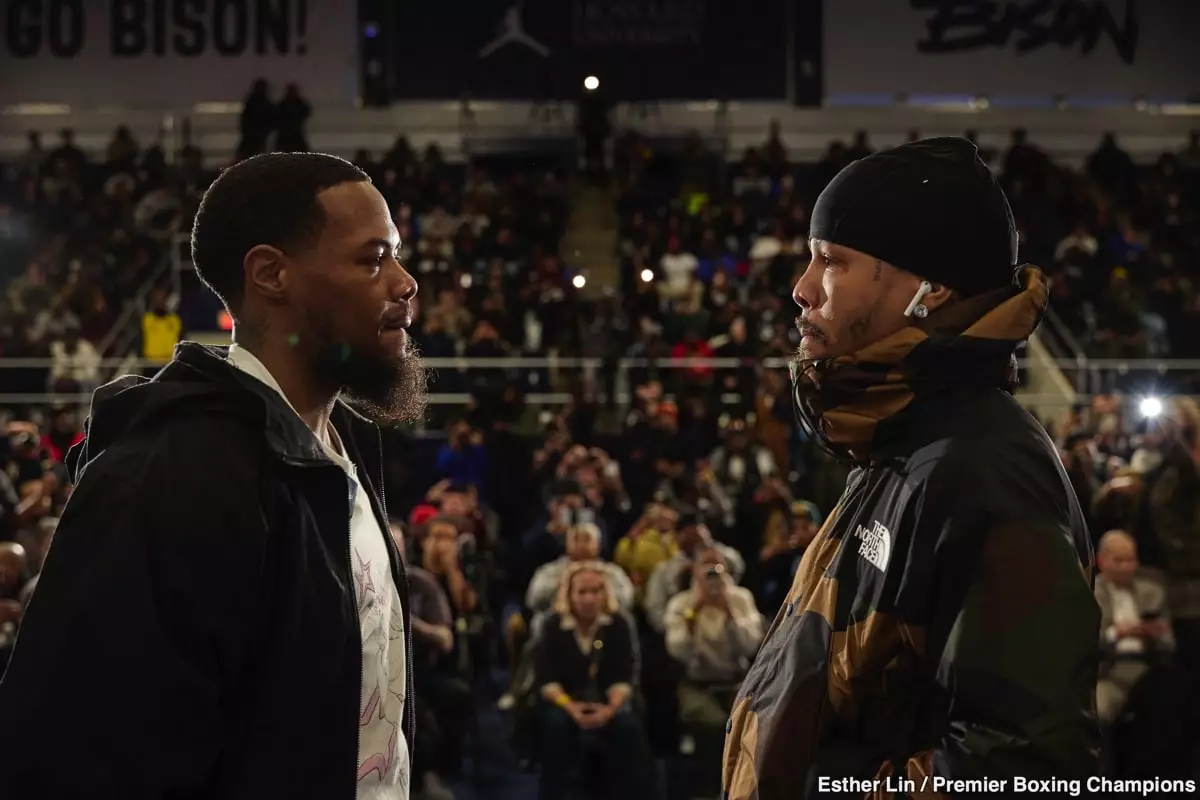Recent announcements from WBA lightweight champion Gervonta Davis have left fans and analysts alike expressing varied reactions. Initially scheduled for March 1st, his title defense against Lamont Roach has been abruptly canceled, with Davis conveying the news through a terse Instagram post. His statement, “The fight is f*** cancel,” encapsulates a mix of frustration and bafflement surrounding this bout. However, an analysis of fan reactions reveals a surprising trend: rather than discontent, many seem relieved that the fight will no longer take place.
Davis’s matchup against Roach has faced fierce criticism since its inception. This sentiment is not entirely unexpected, as both casual observers and die-hard boxing enthusiasts have voiced disappointment at the prospect of what many consider a lopsided contest. With Davis holding an impressive record of 30 wins, 28 by knockout, against Roach’s relatively muted profile, the fight generated minimal excitement and anticipation.
While Davis’s abrupt announcement might suggest dissatisfaction, one must ponder the intentions behind such a revelation. Is this cancellation a mere publicity stunt to amplify interest in Davis’s subsequent fights, or does it stem from genuine concerns about the bout’s viability? Fighters often navigate dramatic landscapes, where every statement and action is meticulously curated to maintain marketability. Davis’s public persona has seen a blend of bravado and calculated risks, making it plausible that he is leveraging this situation to garner attention for upcoming events, especially with his hints at retirement after three more fights in 2025.
Despite the uncertainty surrounding the cancellation, Lamont Roach has remained conspicuously silent regarding the matter. This lack of communication from both Roach and Premier Boxing Champions only fuels speculation that there’s more to this story than what appears on the surface. Could this cancellation lead to an unexpected shift in Davis’s trajectory – one where he opts for a more challenging opponent?
At the heart of the discussion lies a critical examination of Gervonta’s selection of opponents. The decision to face Roach, known primarily within regional circuits, raises questions about Davis’s ambition and willingness to embrace higher-stakes challenges in the lightweight division. A pattern of matches against less formidable competitors could suggest a strategy that prioritizes maintaining his unblemished record over facing top-tier foes. Should Davis seek the admiration of boxing purists, he would benefit from trading blows with genuinely formidable opponents—bouts that could bolster his legacy.
As anticipation builds for Davis’s next move, one must wonder how this cancellation of the Roach bout will ultimately shape his career trajectory. Do his peers and fans perceive him as a champion willing to take risks, or will this latest development cement perceptions of him as a fighter content with cherry-picking opponents? Only time will reveal the unfolding narrative surrounding Gervonta Davis, but for now, the boxing community watches closely, awaiting both his next fight announcement and a deeper conversation about his identity in the sport.

